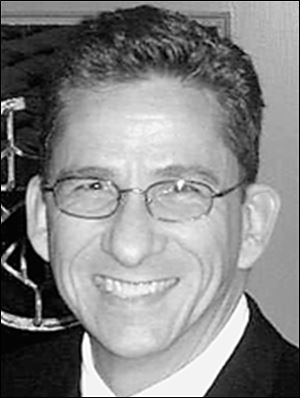
Malpractice: Ridding the courts of ‘hired guns'
1/3/2004
Baehren: Restore integrity
A PHYSICIAN from New Jersey lied under oath about his credentials and gave blatantly false testimony in a malpractice trial. However, the state medical board, the judge, and the county prosecutor will not investigate.
This type of illegal and unethical testimony occurs on a regular basis in the civil courts of our land. Medical experts sell their testimony to attorneys and spew forth the worst kind of lies and junk science while they line their pockets and attorneys collect huge contingency fees.
Beyond the judge, there is no oversight of medical testimony and no easy way to counsel or discipline physicians who behave unethically in court.
Sworn pre-trial depositions have been tainted by unethical behavior as well. Physicians who are not certified in the same specialty as the defendant are testifying as to the standard of care in a specialty in which they have no expertise. This is like the carpenter telling the landscaper that he put the wrong kind of shrubs in the yard.
Doctors have testified using information that became available after the alleged event. This is like a police officer writing you a ticket for running a stop sign that will be installed next year.
Some young physicians are testifying in cases where the event happened before they even had their medical license. This is like me telling my parents what it was like during World War II.
Several specialty societies have ethical rules for testimony but little clout for enforcing them.
The Coalition and Center for Ethical Medical Testimony, reachable at www.ccemt.org, is a group of physicians and attorneys committed to ridding the civil court system of “hired guns.”
This newly formed group plans to shine the light of truth on unethical testimony and work toward a system that monitors experts and disciplines unethical and illegal behavior.
Addressing unethical medical testimony will go a long way toward fixing our broken system of compensating injured patients but this is only a part of the problem. The current efforts for tort reform on the state and federal levels are a Band-Aid approach when major surgery is needed.
Under the current system too many unfounded suits make it to a civil court system that has proven itself to be a terrible judge of malpractice and an even poorer judge of appropriate compensation for injury.
One might think that this is just another problem confined to the medical profession and we should learn to clean our own house.
While there is certainly oversight and discipline that needs to be done in the house of medicine, this problem extends beyond the reach of doctors, state medical boards, and specialty societies.
The legal profession, the civil courts, state and federal representatives, and society at large also need to be involved to solve this problem. The plaintiff's bar fights ferociously any attempt to reform this broken system because of the enormous amount of money involved just in medical malpractice. Include product liability and other personal injury cases and the amount of money is staggering.
Every physician I know wants to see patients compensated appropriately if they have been truly injured because of malpractice. The plaintiff's bar argues that our current system works for the injured.
I think not. Many who are injured go uncompensated and many who had a bad outcome but did not suffer from malpractice get huge awards. The greatest beneficiaries of the current system are the attorneys, not the patients.
We need a less adversarial system that quickly compensates the injured and fairly evaluates cases using people who are skilled in understanding medical information.
Our juries and some judges are ill-prepared to do this. Unethical experts make the task of deciding about malpractice even more daunting. Juries can't tell who is lying and end up letting emotion and sympathy for the plaintiff influence the decision.
The financial and emotional costs of this system are gigantic. Malpractice premiums are off the charts. And this is proven to be from high claims, not stock market losses.
Physicians have fled states such as West Virginia and Mississippi, leaving patients with limited access to specialty care. This adversarial system has poisoned the patient-physician relationship leaving many physicians bitter and battle weary. This has caused physicians to approach patients as potential litigants rather than friends in need of help.
A recent study showed that the average emergency physician gives away $138,000 in free medical care annually. In spite of unparalleled generosity and being the only physicians who as a group offer care to everyone who wants it regardless of financial status, race, or state of intoxication, emergency physicians are one of the most frequently sued specialties. But human nature tells us that a person will extend a helping hand only so many times if it keeps getting bitten.
This colossal medical liability problem affects us all and we all need to participate in the solution.
Our elected representatives need to look at lasting and meaningful solutions in light of what is good for society, not special interests.
Attorneys need to be more refined and reasonable about the cases they file.
Patients and their families need to thoughtfully consider the implications of their actions before asking an attorney to file a lawsuit.
Just being angry about the outcome of medical care is not justification for a lawsuit. Patients should sit down and talk to their doctor about the problem or ask an independent physician in the same specialty to review the case.
A bad outcome does not mean that malpractice has occurred. One person's bad luck should not be a license to cash in at society's emotional and financial expense.
Lastly, experts must tell the truth in court. “I swear to tell the truth” is not a slogan and “Thou shall not bear false witness” is not a suggestion. The lying needs to stop in order to restore integrity to our civil justice system.
Dr. David Baehren is an emergency physician at Toledo Hospital.